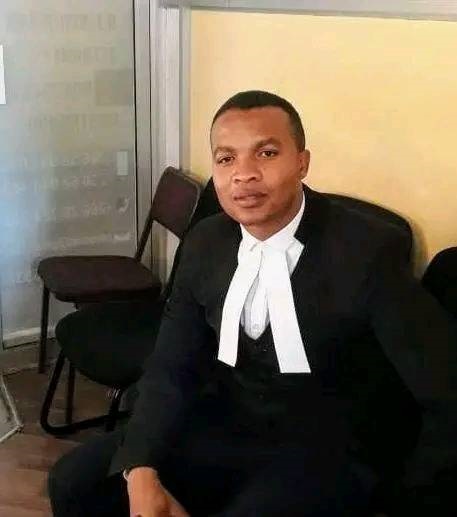Mohloai Mpesi
Advocate Fusi Sehapi has threatened to withdraw his membership from the Law Society of Lesotho after being defeated by advocate Lintle Tuke in a contest for the society’s presidency post.
The Law Society of Lesotho council elections were held at the Selibeng Complex Centre at Ha-Motloheloa on the outskirts of Maseru last weekend.
Advocate Mokhoro Makara won the deputy president position, advocate Ithabeleng Phamotse won the secretary position, advocate Rethabile Setlojoane was elected treasurer, and advocate Molemo Jae a member.
Sehapi scored 14 votes while Tuke bagged 28 votes during elections held on Friday. The following day, on Saturday, Tuke garnered 23 votes while his contender got only two votes.
According to Sehapi, the elections, as per the notice were, scheduled for Saturday, June 3 but the Annual General Meeting (AGM) had start on Friday.
He said during the AGM, the outgoing president, advocate Tekane Maqakachane was grilled by members concerning the society’s finances and decided to adjourn the AGM arbitrarily.
However, according to Sehapi, members who were present on Friday pushed for the elections to be held the same day saying they had funerals of other lawyers to attend the following day.
Sehapi further told this publication that Tuke, who was Maqkachane’s deputy, read a clause that authorised him to preside over the proceedings when the chairperson has left.
“He won the elections on Friday and I lost, we left very late with the understanding that voting had been concluded,†he said.
He charged that on the following day, Maqakachane, Tuke, and others returned to the same venue.
“I and my team were not there, I went there to try and negotiate that my team was not present and I could not contest. They held other elections when elections had already been held the previous day,†he said.
“They teamed up against me and denied me a chance to talk. I told them that the elections were not going to be fair. I told them that these elections are invalid because to my knowledge, the elections were held the previous day and my constituency did not attend on Saturday,†he continued.
“I am not going to challenge the elections because I think I have done my part to ensure that the elections are held. I do not have the motivation to challenge the elections.
“I am only going to consider whether I should continue as a member of the Law Society because it is my legal opinion that nothing binds me to be a subscribed member of the Society,†he said.
Tuke told this publication that it was his first time seeing the Law Society of Lesotho holds elections in that fashion but said they a were a testament to the society’s vibrancy and resilience.
“They were both a mirror and a catalyst for the underlying strength of our legal fraternity. They represented an opportunity for our members to express their views about the direction they desire for our profession and the type of leadership they believe can best advocate for their interests,†he said.
“The electoral process was a robust exercise in democratic decision-making, notwithstanding the challenges we encountered. The contention around the date of the elections, for instance, reminded us of the necessity for clearer communication and consensus-building,†he said.
He said he was committed to tackle a number challenges that the Society is faced with, such as; grappling with a lack of strategic direction and planning, absence of comprehensive policies, and dereliction of statutory duties by lawyers.
“To tackle these challenges, we will first focus on creating a robust strategic plan to set clear goals, objectives, and milestones. This will provide a roadmap for our activities and operations in the foreseeable future. We will ensure this plan is regularly reviewed and updated to accommodate changing circumstances and needs,†Tuke said.
“We will work on developing clear, concise, and practical policies that ensure transparency, accountability, and the efficient operation of the Society. These policies will guide our interactions and procedures, both within the Society and with our external stakeholders,†he continued.
“We will prioritize fulfilling our statutory obligations towards our lawyers. This will involve creating platforms to engage with our members, understand their needs, and act upon them. This could include continuing legal education, mentorship programs, and initiatives to enhance practice conditions,†he said.
“To overcome these and other challenges, we’ll need to foster a culture of open communication, collaboration, and shared responsibility. As a team, we’re committed to a participatory and inclusive approach, where every member of our legal community has a role in shaping the future of our profession. We believe that by working together, we can overcome these challenges and create a stronger, more vibrant Law Society,†he continued.




